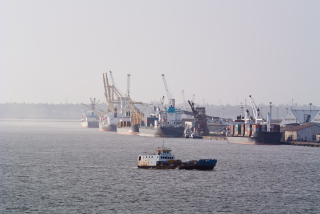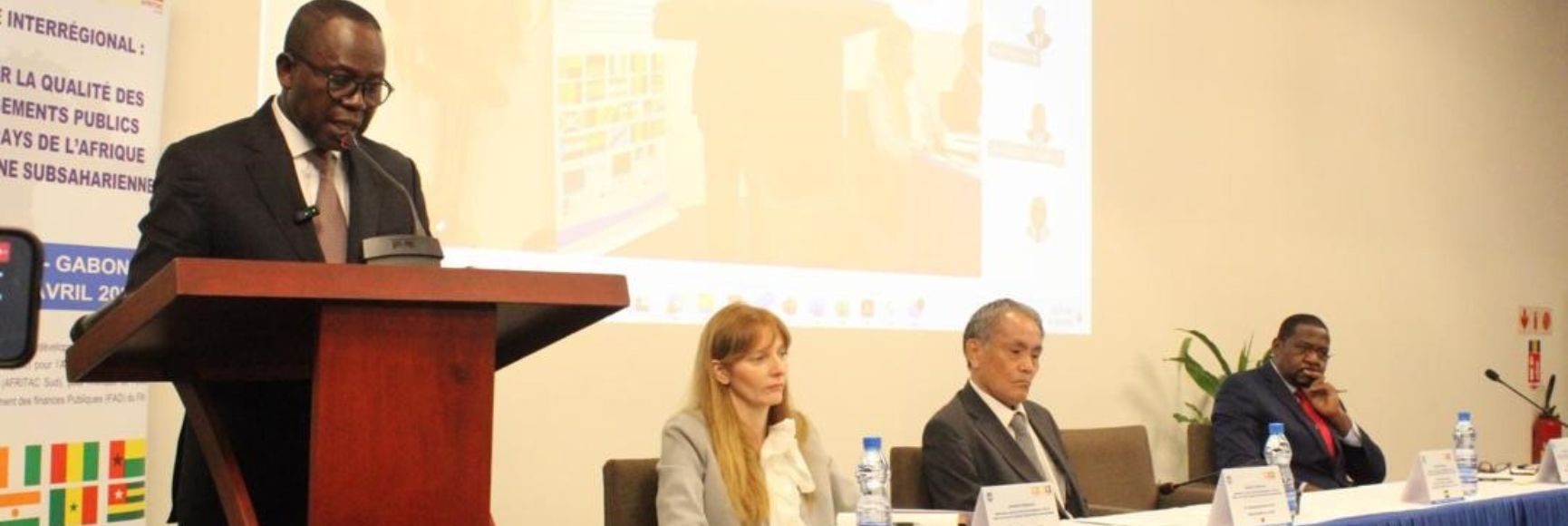
Posted by Camilo Gomez Osorio[1]
The achievements of the Fiscal Risk Unit (FRU) of Mozambique’s Ministry of Finance over the last two years are impressive.[2] A previous PFM blog article described the background. While working to reduce the risk exposure of public finances and bring a medium-term perspective to the budget process, the Unit has also opened a dialogue with civil society on the management of fiscal risks and improving fiscal transparency. It is fair to say that the FRU is open for business!
Fiscal risks are factors that cause fiscal outcomes to deviate from expectations or forecasts. In April 2019, Mozambique’s latest Fiscal Risk Statement (FRS) was publicly released and generated great public interest. The report was approved by the Cabinet and is available on the Ministry’s website[3]. It received full spreads in newspapers and TV news broadcasts. Watching the Ministry of Finance’s Director of Economic Studies on national TV debating the findings of the FRS demonstrates the impact of this reform and the interest of civil society in engaging on these important topics.
But the Unit has accomplished more than just the release of a report. A small team of eight technical staff has been working diligently behind the scenes to integrate fiscal risk analysis into medium-term planning and developing policies and processes to mitigate these risks. The FRU contributed to the government’s Medium-term Fiscal Framework (MTFF) with scenarios and sensitivity analysis to illustrate the impact of fiscal risks on the economy. The Unit’s debt sustainability analysis, reflecting contingent liabilities, informed the government’s Medium-term Debt Strategy. In addition, the Unit has developed processes to collect information to monitor risks in previously overlooked areas.
A continuous capacity building effort with multiple donor support has made this progress possible. In 2017, the Ministry of Finance requested IMF assistance to develop the FRU, a project that received funding from the Government of Belgium and Irish Aid. To lead this work, I joined the Unit in September 2017 as a long-term expert of the IMF’s Fiscal Affairs Department based in the Ministry of Finance.
I found myself in country that, in the opinion of many experts, was overly-diagnosed. Mozambique’s post-conflict past and its prospects of becoming a resource-rich country, with the discovery of gas reserves, has made it a favorite amongst the donor community. However, while the government has benefitted over many years from a wealth of donor reports assessing their PFM systems, they have lacked the capacity and on-the-ground support to implement change. Having a long-term expert on the ground made an important difference. As a resident advisor, you face a tension between training technical staff to assume new responsibilities, and doing the work yourself to deliver quality outputs under very tight deadlines—outputs, however, that may lack national ownership. Ultimately, how effectively you manage this trade-off will determine the sustainability of your project outcomes.
There is no optimal approach to helping a country develop good fiscal risk management practices. In the case of Mozambique, creating the FRU under a new Director reporting directly to the Minister of Finance gave the reform more traction. However, some countries—an example is Portugal— have chosen to separate fiscal risk management from the ministry of finance to shield it from the political debate. Other countries have decided to locate the function within the macro-fiscal directorate of the finance ministry. The location of the macro-fiscal unit is ultimately a country-specific decision. In my opinion, however, keeping one foot inside the ministry of finance is important to ensure that the unit’s outputs inform fiscal policy and the budget preparation process in a timely manner.
In Mozambique, capacity development efforts have been at the center of the reform. The FRU has benefitted from short-term IMF missions and close collaboration with experts from the Fund’s Regional Technical Assistance Center for Southern Africa, the IMF Resident Representative’s Office, and the World Bank. Particularly useful was a study tour for finance ministry officials to learn from the experience of Portugal’s Fiscal Risk Council (Conselho das Finanças Públicas). This was an opportunity for the Mozambican delegation to see first-hand the impact of mitigating risk on medium-term budget planning. At the technical level, staff of the Unit underwent a structured training program in macroeconomics, fiscal policy analysis, debt sustainability, and credit-risk rating. Ultimately, building technical capacity is a long-term endeavor, but the FRU has come a long way.
The challenge going forward is for the Unit to sustain the momentum and avoid distractions. Rather than being spread too thinly, its focus should remain on monitoring the largest risk exposures to public finances and the government’s balance sheet. These exposures include public corporations, large PPP projects, and public and publicly guaranteed debt. It would be easy for the Unit to become sidetracked analyzing procedures and enforcement, which are areas within the realm of “compliance” and internal audit. Yet, the focus of the Unit should remain on its core mandate. Fiscal risk management is ultimately a forward-looking macro-fiscal function addressing issues that undermine the credibility of the budget and are key to promoting fiscal transparency.
[1] IMF Resident Advisor, Ministry of Finance, Mozambique.
[2] Gabinete de Gestão do Risco (GGR), Ministério da Economia e Finanças.
[3] Download Mozambique’s FRS 2019 at:
http://www.mef.gov.mz/index.php/documentos/instrumentos-de-gestao-economica-e-social/relatorios-de-riscos-ficais/680-relatorio-de-riscos-fiscais-2019/file?force_download=1
Note: The posts on the IMF PFM Blog should not be reported as representing the views of the IMF. The views expressed are those of the authors and do not necessarily represent those of the IMF or IMF policy.





